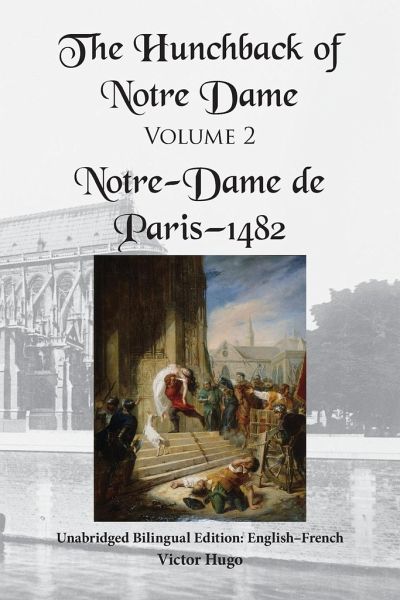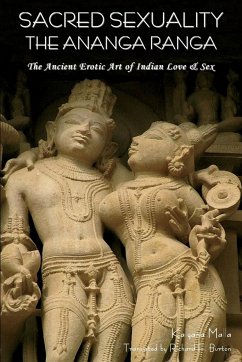
The Hunchback of Notre Dame, Volume 2
Unabridged Bilingual Edition: English-French
Versandkostenfrei!
Versandfertig in 1-2 Wochen
26,99 €
inkl. MwSt.

PAYBACK Punkte
13 °P sammeln!
Volume 2 of 2 ¿The Hunchback of Notre Dame, a French Gothic novel published as three volumes in 1831, was originally titled Notre-Dame de Paris-1482 because the story takes place in that year and centers around the Notre-Dame cathedral in Paris. An early English translator renamed his edition of the novel after Quasimodo, the cathedral's deformed bell-ringer in the story. That name has stuck for all English editions. One of Victor Hugo's most well-known works, this novel has been adapted to film more than a dozen times, including by Disney. Hugo wrote this story partly to celebrate the Gothic...
Volume 2 of 2 ¿The Hunchback of Notre Dame, a French Gothic novel published as three volumes in 1831, was originally titled Notre-Dame de Paris-1482 because the story takes place in that year and centers around the Notre-Dame cathedral in Paris. An early English translator renamed his edition of the novel after Quasimodo, the cathedral's deformed bell-ringer in the story. That name has stuck for all English editions. One of Victor Hugo's most well-known works, this novel has been adapted to film more than a dozen times, including by Disney. Hugo wrote this story partly to celebrate the Gothic architecture of Paris, which was methodically being torn down in favor of more modern styles. As a result, there are large sections of this unabridged text that go into great detail on the architecture of the time. The novel was so well received in France that it led to a Gothic revival architectural movement and restoration efforts on the cathedral that are responsible for preserving its original style.














